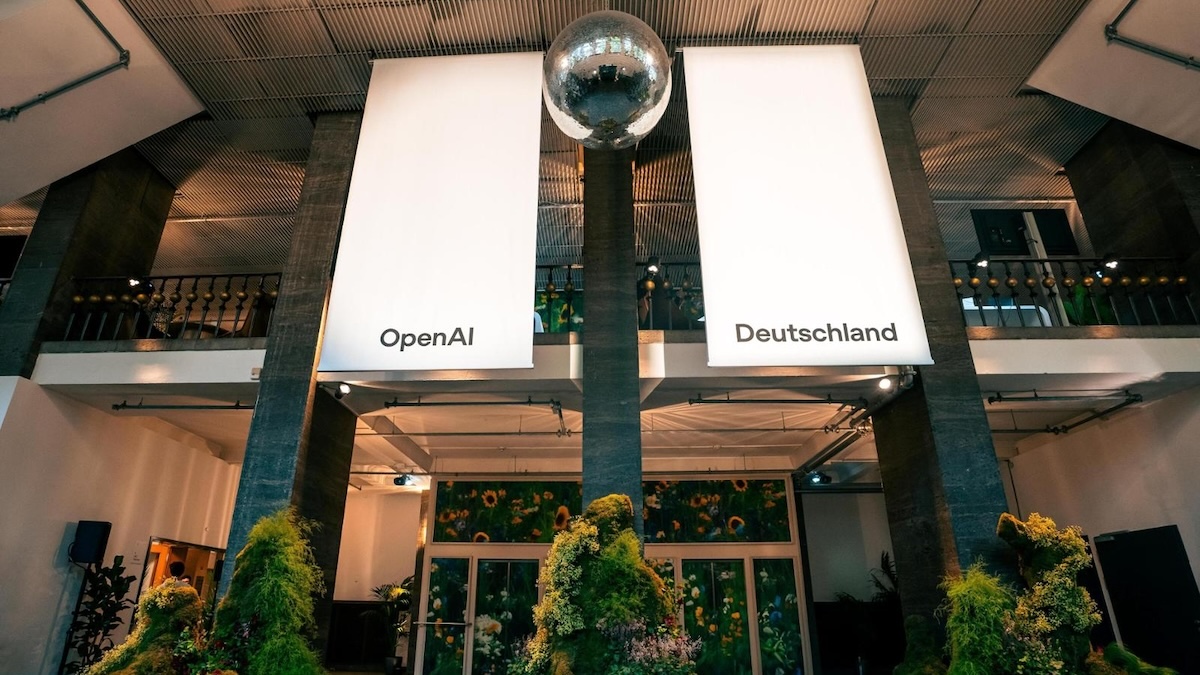The article CheckGPT: OpenAI embarrasses itself with math claims first appeared in the online magazine BASIC thinking. With our newsletter UPDATE you can start the day well informed every morning.

OpenAI has claimed that GPT-5 has solved several complicated number theory problems. But while the company celebrated a math revolution on social media, experts exposed a misrepresentation. There was a hail of ridicule from the competition.
OpenAI celebrates a math revolution that isn’t
- There are numerous problems in mathematics Experts have been employing them for decades. That’s why the British mathematician Thomas Bloom created the website erdosproblems.com brought into being. There he lists the Erdős problems. These go back to the Hungarian mathematician Paul Erdős and are considered particularly difficult to prove. According to OpenAI, GPT-5 is said to have solved some of these. Bloom debunked this claim.
- AI models from Google DeepMind and OpenAI will debut at the International Mathematics Olympiad (IMO) 2025 Gold medal level achieved. Both systems solved five out of six tasks, which significantly shifts the current state of AI research in mathematical thinking. AI is now very good at solving mathematical problems, but it reaches its limits when it comes to complicated tasks – and is occasionally prone to hallucinations.
- Despite the rapid developments in the AI field, mathematics is still considered one of the biggest challenges. The reason: Language models respond based on patterns and probabilities, rather than based on real knowledge or understanding. This may be enough for some mathematical equations. For others, it requires logical conclusions that AI is unable to make.
Not a math revolution, but a remarkable amount of research
OpenAI’s math glitch reveals this Excessiveness of hypewhich the company has now fallen victim to. One could argue that the company made a mistake. But this automatically raises the question of why OpenAI does not have its claims verified.
The answer? An almost absurd AI competitionwhich apparently exerts such pressure that supposedly spectacular breakthroughs are hastily celebrated.
However, the incident would be far less dramatic for OpenAI if it were not for one Communications disaster would show, which would further fuel the already critically viewed hype about ChatGPT.
This embarrassment actually hides a remarkable achievement. Because GPT-5 didn’t solve any math problems, but impressive research skills shown. According to reports The AI identified relevant publications that even experts like the mathematician Thomas Bloom were not aware of.
Voices
- OpenAI manager Kevin Weil announced in one now deleted post on X (formerly Twitter): “GPT-5 has just found solutions to 10 (!) previously unsolved Erdős problems and made progress on 11 more. These have all been unsolved for a long time.”
- Mathematician Thomas Bloom objected immediately: “Hello, as the owner/supervisor of erdosproblems.com I think this is a dramatic misrepresentation. GPT-5 found references that solve these problems that I personally didn’t know about. The status “open” simply means that I personally am not aware of any publication that solves this problem.”
- After Bloom clarified the misrepresentation, OpenAI deleted his posts. Meanwhile, there was criticism from the competition. Deepmind CEO Demis Hassabis in addition short and sweet: “That’s embarrassing.” Yann LeCun, AI boss at Metasaid that OpenAI is his bought into its own hype is: “Raised by their own GPTards”.
OpenAI: Math embarrassment reveals Achilles heel of the AI industry
OpenAI’s math lapse reveals the AI industry’s sore point: excessive overstatement. The paradox: Instead of talking about the actual progress, marginalities are chosen as revolutions.
The actual one Game changernamely the almost limitless possibilities of data processing through AI is falling behind. However, anyone who continues to compare ChatGPT and Co. with a human’s ability to think is making a mistake.
This applies to both companies and private users. The crux of it needs to be understood: Artificial intelligence can rarely replace humans. It must be understood as an assistant that requires control and, above all, should be critically questioned.
Then AI can be a real benefit, especially for research and data processing. However, announced revolutions or intellectual breakthroughs are always to be placed in the PR drawer.
Also interesting:
- Freed from thinking: How AI wraps our heads in cotton wool
- German AI authority: bureaucratic monster or citizen-oriented?
- Figure 03: A humanoid robot for every household?
- Chat control: Germany torpedoes EU plans
The post CheckGPT: OpenAI embarrasses itself with math claims appeared first on BASIC thinking. Follow us too Google News and Flipboard or subscribe to our newsletter UPDATE.
As a Tech Industry expert, I believe that OpenAI’s CheckGPT tool is a valuable addition to the artificial intelligence landscape. However, it is important for OpenAI to accurately represent the capabilities of their technology and not make exaggerated claims about its mathematical abilities.
While CheckGPT may be a powerful tool for fact-checking and verifying information, it is not infallible and should not be touted as a replacement for human expertise in mathematical analysis. OpenAI should focus on promoting the tool’s strengths and limitations rather than making bold claims that could ultimately damage their credibility in the industry.
It is crucial for technology companies to be transparent about the capabilities of their products and to avoid overhyping their capabilities. OpenAI should learn from this situation and take steps to ensure that they accurately represent CheckGPT’s abilities in the future.
Credits